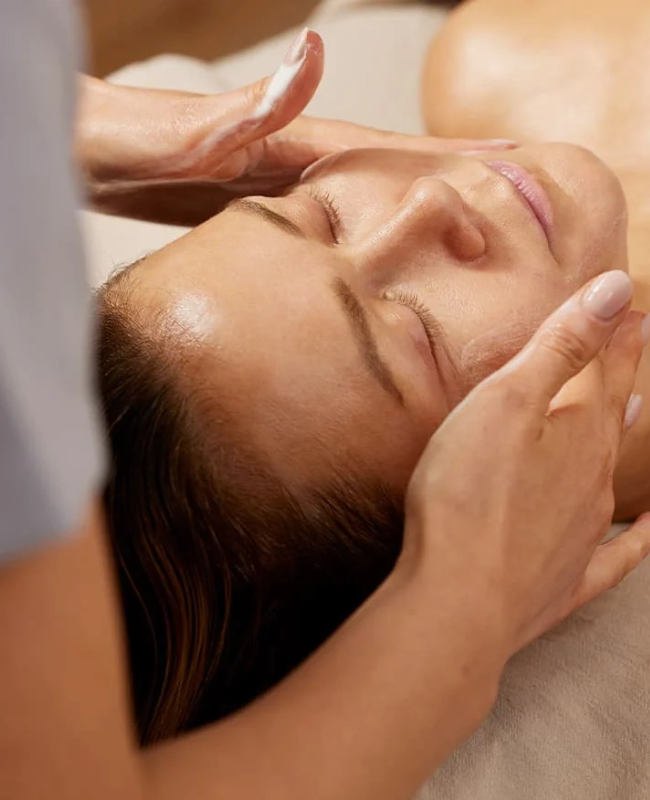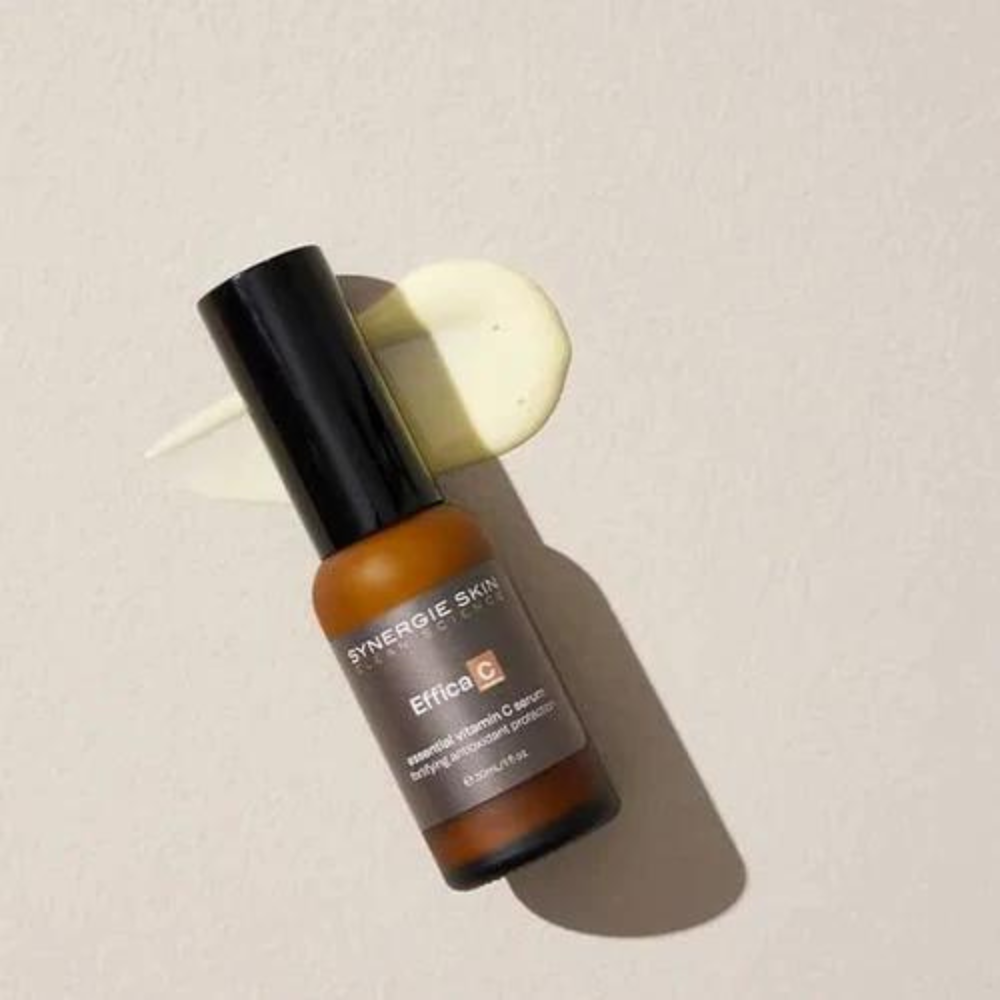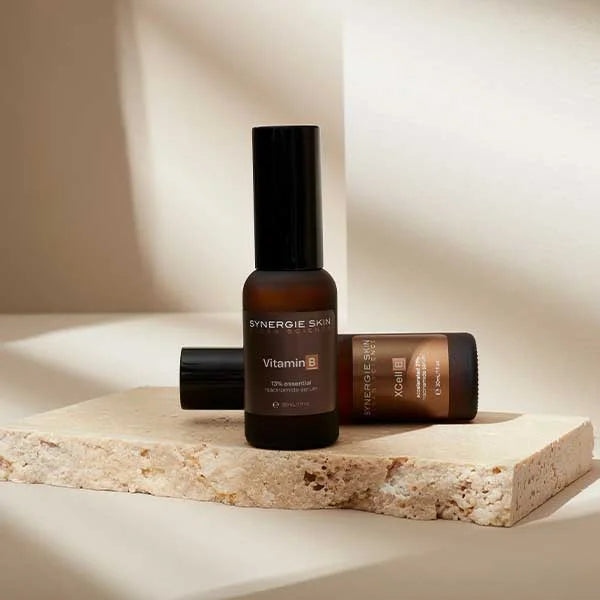How to Strengthen Your Skin Barrier: Top 6 Tips
And how to repair a damaged barrier for long-term skin health

What is the skin barrier?
Understanding the skin barrier and how it functions is a vital aspect to skin longevity, as well as overall health in the body! In essence, your skin is the largest organ of your body and is made up of multiple layers, each of which performs specific functions when protecting and insulating your body against foreign bodies and pollutants.
Your skin’s outermost layer is called the stratum corneum, and it consists of sturdy and protective skin cells called corneocytes that are bound together by lipid bilayers that act as a ‘glue’. These corneocytes and lipids form what is defined as your skin barrier within which, you’ll find key proteins, keratin and natural moisturizers including cholesterol, fatty acids and ceramides. Among other vital functions, these synergistic components keep the water inside your body, which prevents TEWL (Trans Epidermal Water Loss) and dehydration.
Without your incredible skin barrier, various harmful aggressors such as free radicals, solar rays, environmental pathogens, toxins and pollutants can penetrate your skin and cause significant disruption within the body.
How do you know if your skin barrier is damaged?
When you experience skin barrier damage or dysfunction, you are likely to become prone to a variety of symptoms including dry or flaking skin, pigmentation, roughness, acne, itchiness, sensitivity and inflammation, as well as bacterial, viral or fungal skin infections. If you have a damaged skin barrier read below for step-by-step recommendations. If, however, after reading this, you don’t believe you have a broken skin barrier but more likely just have sensitive skin, here is my recommended skincare for sensitive skin.

What are the steps of skin barrier repair?
The very first step to barrier repair is to analyse your skin routine, and root out any causes that may be adding unnecessary stress to an intolerant skin barrier. This also extends to diet and haircare. Essentially, if there are any products your skin comes into contact with that contain questionable additives, I would recommend seeing how your skin behaves when removing them from your routine. Consider speaking with a dermatologist about which products in your routine are essential and effective.
Which products should you avoid/seek out if you have a damaged barrier?
Maintain the pH of the skin
Pay attention to the pH levels of certain products. Generally, the skin’s acid mantle sits at around a pH of 4-6 while the pH of some skin products can range from 3.7 to 8.2. I recommend cleansing with a pH balanced products that have a pH between 4.0 and 5.0 such as BioCleanse. Avoid bar soaps which are highly alkaline and cleansers containing high levels of SLS or SLES which can be more irritating. For a severely compromised barrier, I would opt for a low foaming more creamy skin cleanser.
Avoid excessive exfoliation with acids or scrubs
Avoid use of acids such as glycolic, lactic and salicylic acids, and do not use harsh scrubs which will directly irritate a damaged barrier. Choose non-acidic exfoliants and polyhydroxy acids.
Check your labels for added fragrance
Artificial fragrance can be extremely irritating to a delicate barrier. Even high levels of certain essential oils can act as potential irritants. When in doubt, look for fragrance-free options.
How do you heal a damaged skin barrier?
Barrier repair and reinforcement is all about reducing inflammation and retaining moisture. If you wish to proactively strengthen the skin barrier (perhaps as a pre-treatment precaution) I would recommend seeking out the following skincare essentials, among others:
1. Vitamin B3 (niacinamide)
This is your best friend for barrier protection!
B3 is known to strengthen the barrier by increasing ceramide production. Increasing essential ceramide lipids for retaining water is a vital function of the skin barrier. Niacinamide also stimulates the production of the major skin barrier proteins to promote healing, protects the skin surface from inflammation and promotes overall skin immunity.
2. Prebiotics and post biotics
Pre and postbiotics in skincare can help to balance the good and bad bacteria. Did you know that there are more bacteria on the surface of the skin than skin cells themselves? These little microbes need to be kept in perfect balance in order for our barrier to be happy and intact. Prebiotics feed the good bacteria and postbiotics help to reduce inflammation and mimic the benefits of good bacteria. Dermiotic pre-serum elixir is ideal for balancing the skin microbiome for a healthy skin barrier.
3. Vitamin A/gentle retinoids
Gentle retinoid products regulate the production of new, healthy skin cells which end up forming the top of your skin barrier. Retinoids also help to create healthy blood vessels to provide nutrients for the damaged skin barrier as well as general barrier maintenance. If your barrier is compromised, ensure you use a gentle form of vitamin A such as an encapsulated retinol (as an entry point in Ultimate A). I would advise avoiding prescription strength retinoic acid, as this may cause flaking and irritation whilst adding unneeded stress to the skin barrier (but, as always, you should consult a dermatologist before making important decisions with regards to prescription retinoic acid).
4. Mineral sun protection
Solar radiation causes free radical damage which can wreak havoc on your barrier. Excessive sunlight can undo a lot of the good work you put into repairing and reinforcing the skin barrier. When it comes to UVA and UVB protection, you know the drill. The sun’s UV rays are a weakened skin barrier’s worst nightmare. They essentially reverse the healing process. Furthermore, a skin barrier that is repairing is more susceptible to solar damage and exposure. It is therefore vital to protect the skin, preferably with mineral zinc oxide, which provides UVA/UVB protection. Zinc oxide also possesses anti-inflammatory properties that aid the barrier healing process.
5. Appropriate moisturizers
Deeply hydrating, reparative moisturizers or sensitive skin moisturizers include HyDrolock and DermaCalm These are designed to be used for nurturing the barrier without skin irritation, depending on your particular skin type.
6. Occlusive products
If your skin barrier is damaged and in need of urgent repair (perhaps due to post-treatment stress from skin needling, chemical peels or certain light and laser therapies), then I recommend the use of an occlusive ointment.
Initially, you’ll need to keep the wound site clean and protected, and you may need to apply an occlusive product over the skin to defend and regenerate the skin’s natural barrier beneath the occlusive. An occlusive agent will provide a moist, protective cover to prevent excessive water loss from the skin (otherwise known as TEWL: Trans Epidermal Water Loss) which is vital to a good barrier-healing outcome. The occlusive should ideally contain anti-inflammatory and antibacterial ingredients. Petroleum jelly is often used as an occlusive, but this crude-oil derived product is very rudimentary and doesn’t contain ingredients that actively promote rapid healing or reduce inflammation. While I do not have a problem with petrolatum for skin safety, it is not a highly sustainable option.
If you are suffering from a dry, irritated or flaky skin barrier, then opt for a more occlusive overnight therapy. This soothing and hydrating balm also contains gentle active ingredients for healing, protection and restoration of a broken skin barrier.

Your simple daily routine for a compromised skin barrier
Your daily skincare routine should be specific to your skin type and skin goals, but here are my top go-to products for general barrier repair. As your barrier becomes more robust, you can add more actives such as a vitamin C serum and exfoliant:
Morning
1. BioCleanse
2. Dermiotic (pre/postbiotic balance)
3. ÜberZinc (daily protective moisturizer)
4. Second Skin Crush
Evening
1. BioCleanse
2. Dermiotic
3. Vitamin B serum
4. Ultimate A serum (the gentlest form of retinoid)
5. HyDrolock deeply hydrating moisturizer OR DermaCalm sensitive skin moisturizer OR De-Stress reparative oil
6. Recover Balm for a severely damaged barrier. This is a deep occlusive overnight therapy (don’t forget to protect your pillow from oil marks)
Additional products:
Luciderm: This product provides gentle, acid-free exfoliation without barrier irritation. This can be used AM or PM on alternate days provided the barrier is not severely damaged.





